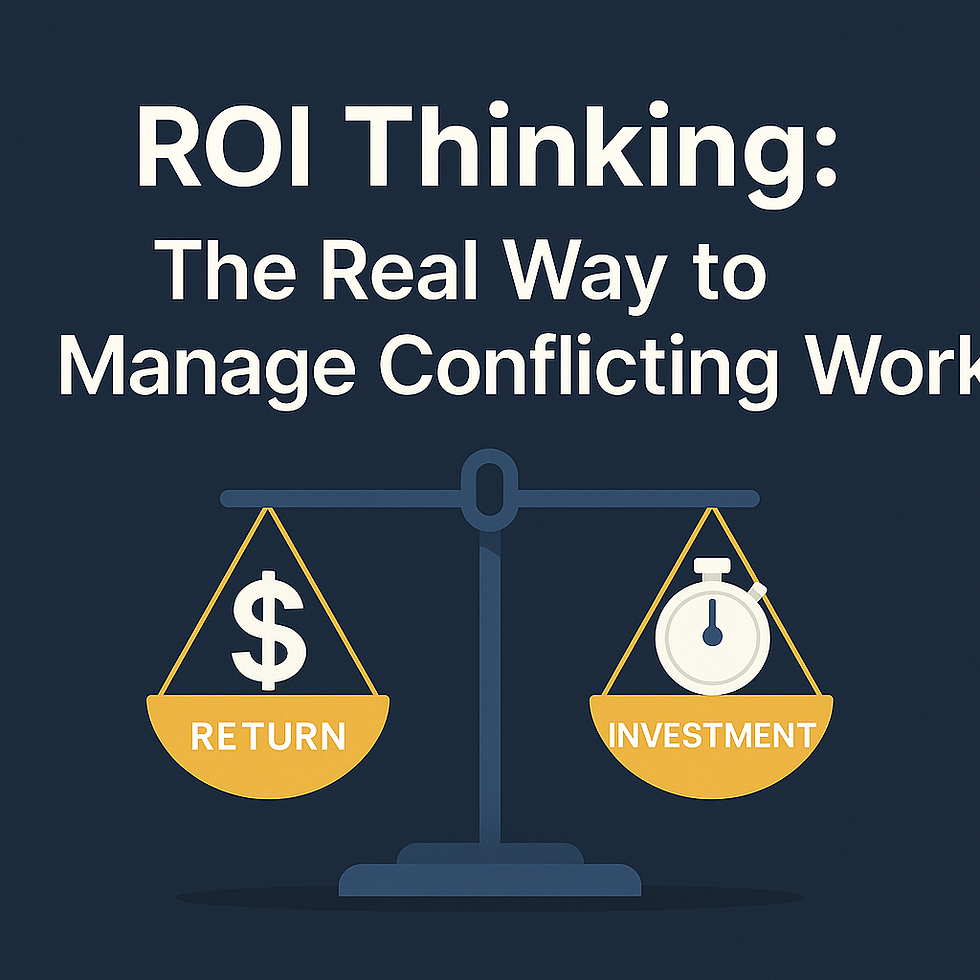“You Should Know the Business Process” — A Myth That Deserves to Be Called Out
- Admin
- May 9, 2025
- 3 min read

The phrase “You should understand the business process” gets thrown around way too often in enterprise teams.But here’s the uncomfortable truth:Most people don’t fully understand it — not even most of the business teams itself.
The Classic Blame Game
At some point in every engineering team, someone hears this:
“Well, that person doesn’t really understand the business process.”
It’s often aimed at an engineer who’s joined late, or who missed the early design phase, or who’s trying to make sense of legacy code and disconnected systems.
And the unspoken assumption is this:
If you were there from the beginning, you’d understand the business process fully.
Let’s break that down. Because I don’t think it holds up.
Understanding the Business Process: Not as Simple as It Sounds
If you’re working as an engineer — even a senior one — here’s what you really have access to:
The systems you integrate with (maybe just Salesforce or a small slice of it)
The interfaces your code touches
Conversations with a few business users
Some documentation that’s out of date by six months
You’re not shadowing every team. You’re not mapping revenue flows end-to-end. You’re not sitting in on GTM strategy reviews or campaign planning cycles.
So what do you have?
A partial lens — scoped around your feature set, your team’s work, and your system boundaries.
And that’s okay. That’s normal.But let’s not pretend that “being early” means “having complete process knowledge.”Because it rarely does.
Even the Business Teams Doesn’t Know the Full Process
This is where the myth really starts to break down.
Talk to marketing. Talk to ops. Talk to sales.
What you’ll find is that each team only sees its own slice:
A campaign manager knows how campaigns run — but not how billing or provisioning works.
A sales rep knows how to get a quote out — but might not know what happens post-sale.
A support agent knows the issue logging flow — but doesn’t know how accounts were created.
Everyone is operating within their own workflow bubble, thinking that someone else knows the entire business process.
But in reality? Only a very small handful of people ever develop true cross-functional understanding.
And even those people — often in revenue operations, architecture, or bizops roles — are constantly playing catch-up, because processes change faster than documentation.
As You Go Up the Org, You See Less, Not More
This may surprise some people, but it’s true:
The higher you go in leadership, the less you know about how things actually work on the ground.
Why?
Because leaders delegate execution.They get summaries, not workflows.They see metrics, not friction points.
So ironically, the ones who are expected to “own the business process” often have the least day-to-day visibility into how it’s actually carried out.
Let’s Draw a Parallel: Managing a Home
Here’s a useful analogy.
Think about how a household runs:
Money comes in
Expenses go out
Groceries are bought
Bills are paid
Events are planned
Who manages it?
Maybe you do. Maybe your spouse. Maybe both.
But if you ask either one of you:
What are our exact recurring expenses?
How much did we spend on utilities last quarter?
Which subscription renews this month?
There’s a good chance you don’t have full visibility.Not because you’re lazy.Because life is messy. Tools are scattered. Memory is short.
Now imagine that at the scale of a 200-person department.That’s what enterprise looks like. So why do we act surprised when someone doesn’t “fully understand the business process”?
What Actually Helps Instead of Blame
If you’re in engineering or architecture, here’s a better lens:
Accept that partial understanding is normal
Focus on mapping out your interaction surface with the process
Ask clarifying questions without shame
Collaborate with ops or revenue teams to get snapshots — not full manuals
Be open about where visibility ends
Key Takeaways
“You should know the business process” sounds like accountability. But often, it’s just projection.
We’re all operating with fragments. The real value is in connecting those fragments, not blaming each other.
Understand flows from interaction — not from being around longer.



Comments